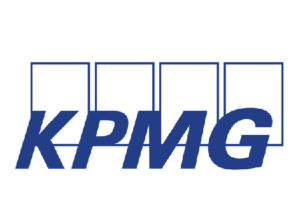In 2017, plans by the Department of Labor (DOL) to increase the salary threshold for exempt employees across the US were scrapped after challenges from multiple states. Whilst these plans continue to be postponed, this year the states of California and New York decided to raise their own exempt salary threshold for 2019.
The changes are effective from December 31st, 2018, for New York and January 1st, 2019 for California. This could mean some of your workers may need to start receiving overtime due to the increase in the amount a worker needs to earn to be salaried exempt.
The increases are as follows:
- California state increases from $45,760 to $49,920
- California state increases computer exemption from $90,790.07 to $94,603.25 (or $45.41 hourly rate)
- New York City increases from $50,700 to 58,500
- Nassau, Suffolk & Westchester Counties increases from $42,900 to $46,800
- Remainder of New York State increases from $40,560 to $43,264
Who will the changes affect?
If your workers are currently overtime exempt and you’re paying a salary less than the amounts above, these changes apply to you. So as a next step, you’ll need to restructure your compensation plan or start paying overtime. We know that for many roles, including recruitment, it’s common to pay a worker a low base rate and then to incentivize sales behavior through commissions. While it’s still possible to pay workers through commission after the increases come into effect, you may need to consider increasing their salary, so that you will not be required to pay overtime.
Some options you may want to consider switching to include:
- Overtime exempt – option 1
Increase your worker salary to the amounts above and pay commissions and bonus on top. You are allowed to reduce their commission and bonus structure however we strongly suggest any issuing of new contracts with new changes has the correct language and is updated as required.
- Overtime exempt – option 2
Increase your worker’s salary to the amounts specified above and then reduce by 10 %. This is because you are able to have commissions make up 10% of their base wage. For example, you would pay a worker in NY $53,181 and the remainder would be made up through commissions. Remember that if the worker was to earn less than the 10% of their base wage in commissions that month, you would still be required to pay the 10% as you’re not legally able to withhold this if they’re salaried exempt.
- Pay Overtime
You can maintain the workers on their current salary and convert to an hourly rate. They will then be required to submit timesheets and will receive OT as required in the state of employment*. You’ll want to consider building your figures correctly as you’ll need to consider public holidays, PTO and holiday pay and how this flows through to the rate.
Some points to remember
- A worker can only have 10% of their ‘base salary’ be commissions. This 10% cannot be withheld if the worker doesn’t meet targets and will have to be paid regardless.
- There is no salary threshold for outside sales employees. These are employees with primary duties of making sales and who are customarily and regularly engaged away from the place of business. So, your Business Development and sales staff who do not work from a central location are may be exempt from the upcoming changes.
- We advise having a strong plan of action and working with your compliance / legal team on preparing for the change.
- You are legally allowed to change your worker’s pay structure, but make sure you clearly communicate these changes and how they will affect them. You’ll also need to make sure that any changes issued are 100% compliant with the new law.
- If you don’t comply by the stipulated date you could face penalties, fines and legal action from the state and country governments.
- It is important to note that there is no federal increase yet. The Department of Labor issued a notice of proposed rulemaking which means they will likely increase the federal rate sometime in 2019 but as of November 2018, that hasn’t gone into effect yet.
Potential exposure for overtime that you could you face
- NY: Any hours over 40 per week would be time and a half
- CA: Any hours over eight per day are at time and a half, any hours over 12 per day are double time. If a worker is working more than 6 consecutive days, the 7th consecutive day will be paid at double time.
If you’d like to talk through these changes with one of our team, get in touch at sales@pgcgroup.com or your PGC contact.












































